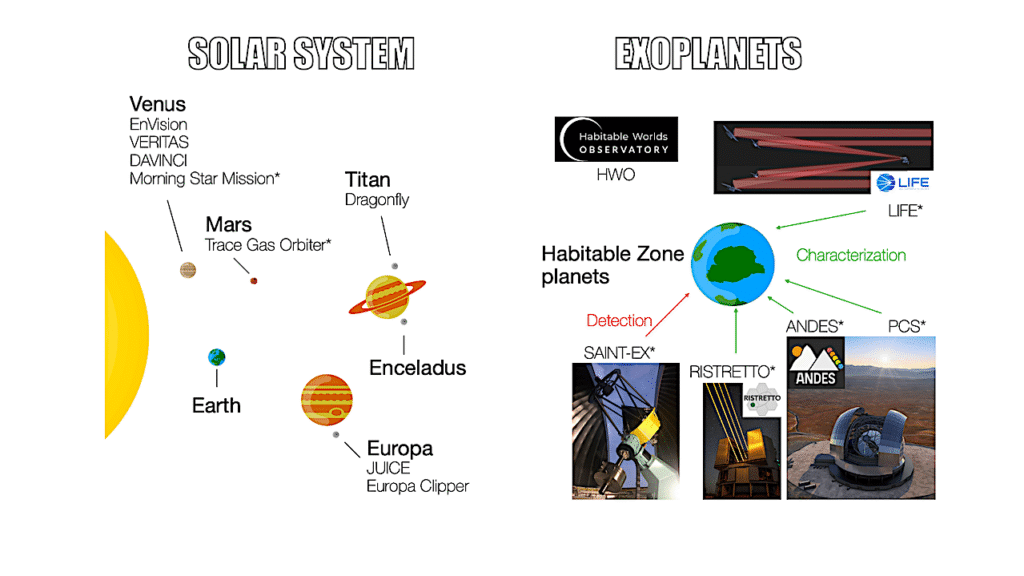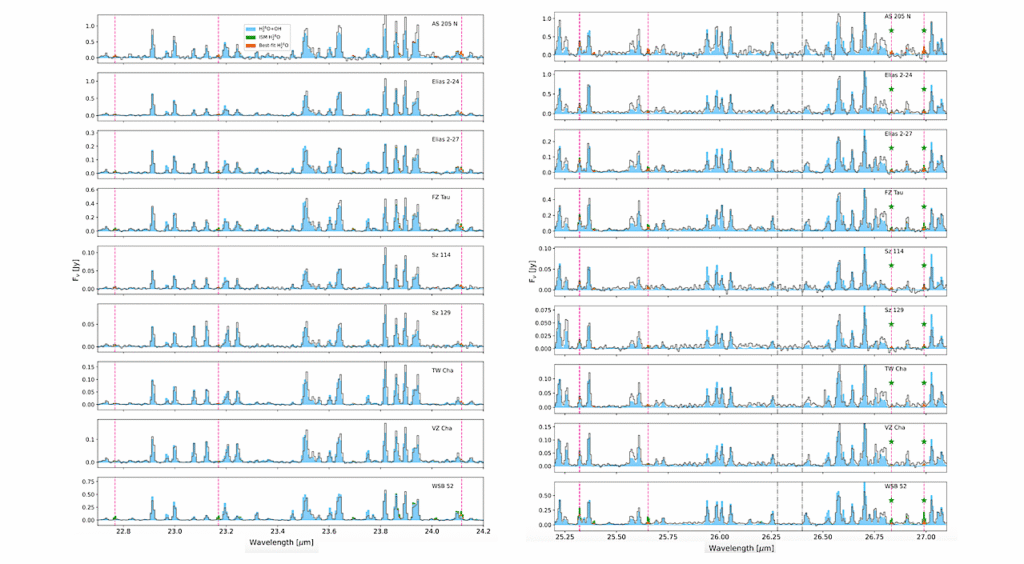Modification Of The Radioactive Heat Budget Of Earth-like Exoplanets By The Loss Of Primordial Atmospheres

The initial abundance of radioactive heat producing isotopes in the interior of a terrestrial planet are important drivers of its thermal evolution and the related tectonics and possible evolution to an Earth-like habitat.
he moderately volatile element K can be outgassed from a magma ocean into H2-dominated primordial atmospheres of protoplanets with assumed masses between 0.55-1.0MEarth at the time when the gas disk evaporated. We estimate this outgassing and let these planets grow through impacts of depleted and non-depleted material that resembles the same 40K abundance of average carbonaceous chondrites until the growing protoplanets reach 1.0 MEarth.
We examine different atmospheric compositions and, as a function of pressure and temperature, calculate the proportion of K by Gibbs Free Energy minimisation using the GGChem code. We find that for H2-envelopes and for magma ocean surface temperatures that are ≥ 2500 K, no K condensates are thermally stable, so that outgassed 40K can populate the atmosphere to a great extent. However, due to magma ocean turn-over time and the limited diffusion of 40K into the upper atmosphere, from the entire 40K in the magma ocean only a fraction may be available for escaping into space.
The escape rates of the primordial atmospheres and the dragged 40K are further simulated for different stellar EUV-activities with a multispecies hydrodynamic upper atmosphere evolution model. Our results lead to different abundances of heat producing elements within the fully grown planets which may give rise to different thermal and tectonic histories of terrestrial planets and their habitability conditions.
N. Erkaev, M. Scherf, O. Herbort, H. Lammer, P. Odert, D. Kubyshkina, M. Leitzinger, P. Woitke, C. O’Neill
Comments: 22 pages, 11 figures. This is a preprint of a 2nd revision submitted to MNRAS
Subjects: Earth and Planetary Astrophysics (astro-ph.EP); Geophysics (physics.geo-ph); Space Physics (physics.space-ph)
Cite as: arXiv:2209.14691 [astro-ph.EP] (or arXiv:2209.14691v1 [astro-ph.EP] for this version)
Submission history
From: Manuel Scherf
[v1] Thu, 29 Sep 2022 11:25:27 UTC (9,924 KB)
https://arxiv.org/abs/2209.14691
Astrobiology








